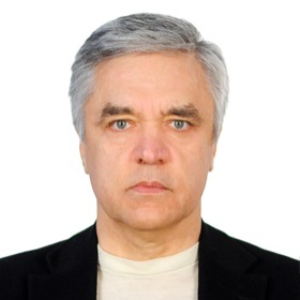Title : Personalized and Precision Medicine (PPM) as a unique healthcare model to be set up via biodesign, bio- and chemical engineering, translational applications, biomanufacturing and upgraded business modeling to secure the human healthcare and biosafety
Abstract:
Traditionally a disease has been defined by its clinical presentation and observable characteristics, not by the underlying molecular mechanisms, pathways and systems biology-related processes specific to a particular patient (ignoring persons-at-risk). A new systems approach to subclinical and/or diseased states, being based on principles of systems biology and achievements of design-driven translational applications resulted in a new trend in the healthcare services, namely, personalized and precision medicine (PPM). To achieve the implementation of PPM concept in Bioindustry & Clinical Practice, it is necessary to create a fundamentally new strategy based upon the biomarkers and targets to have the unique impact. In this sense, despite breakthroughs in research that have led to an increased understanding of PPM-based human disease, the translation of discoveries into therapies for patients has not kept pace with medical need. It would be extremely useful to integrate data harvesting from different databanks for applications such as prediction and personalization of further treatment to thus provide more tailored measures for the patients and persons-at-risk resulting in improved outcomes and more cost effective use of the latest health care resources including diagnostic (companion ones), preventive and therapeutic (targeted molecular and cellular) etc. And across worldwide basic, translational, clinical, and applied design-driven research, and throughout the industrial trends, scientific breakthroughs have been the launching point for principal bioproduct- and biotool developments in the translational trajectory. Even the most innovative healthcare technologies being translated in the right direction, would provide patient benefits only when adopted by clinicians and/or patients in actual practice. So, co-development between innovation-related builders and customers is a key agile principle. And in the coming wave of innovation in the broad-scope applications, learning rapidly what new bioproduct features work well for clinicians and patients will become even more crucial. Translational researchers, bio-designers and manufacturers are beginning to realize the promise of PPM, translating to direct benefit to patients or persons-at-risk. For instance, companion diagnostics tools and targeted therapies and biomarkers represent important stakes for the pharma, in terms of market access, of return on investment and of image among the prescribers. At the same time, they probably represent only the generation of products resulting translational research and applications. So, developing medicines and predictive diagnostic tools requires changes to traditional clinical trial designs, as well as the use of innovative (adaptive) testing procedures that result in new types of data. Making the best use of those innovations and being ready to demonstrate results for regulatory bodies requires specialized knowledge that many clinical development teams don’t have. The areas where companies are most likely to encounter challenges, are data analysis and workforce expertise, biomarker and diagnostic test development, and cultural awareness. Navigating those complexities and ever-evolving technologies will pass regulatory muster and provide sufficient data for a successful launch of PPM, is a huge task. So, partnering and forming strategic alliances between researchers, bio-designers, clinicians, business, regulatory bodies and government can help ensure an optimal development program that leverages the Academia and industry experience and FDA’s new and evolving toolkit to speed our way to getting new tools into the innovative markets. Whilst research and investment continues to develop the understanding, control and engineering infrastructural platforms necessary to tackle ever more challenging systems - and to increase the precision, robustness, speed and affordability of existing solutions - hundreds of start-up companies are already translating learnings and potential applications into commercially viable tools, services and products. Meanwhile, health-related biotechnology applications have dominated the commercialization of products to date, but significant opportunities for the production of bio-derived materials and chemicals, including consumer products, are now being developed. In this sense, systems & synthetic biology start-ups developing tools and services account for between 10%-25% of private investment activity. Around 20% of the latter start-ups address industrial biotechnology targets, but currently, only attract 10-15% private investment. Adopting a more networked approach - linking specialists, infrastructure and ongoing research to de-risk the economic challenges of scale-up and supported by an effective long-term funding strategy - is set to transform the impact of systems & synthetic biology and industrial biotechnology in the bioeconomy. In this sense, the bioentrepreneurs thus drive and shape innovation, thereby speeding up structural changes in the economy. Entrepreneurship is thus a catalyst for economic growth and national competitiveness. Startups in bio design usually have a revolutionary idea however design driven innovation approaches should be used; to develop innovative business models that are scalable and profitable as well as to develop innovative bio marketing strategies. A startup should not be focused on the product only; market, competitors, users, suppliers to be identified real opportunities for innovation. In the context of bio design and biotechnology, the bioentrepreneur operates in a knowledge-based and science-based design-driven Biotech and Bioindustry, where competitive advantage is achieved through the effective management of intellectual property emanating from good life science. The bioentrepreneur is often a scientist/researcherturned-entrepreneur who wishes to see their research successes put into practice through commercialization. Healthcare is undergoing a transformation, and it is imperative to leverage new technologies to support the advent of PPM. This is the reason for developing global scientific, clinical, social, and educational projects in the area of PPM and TraMed to elicit the content of the new trend. The latter would provide a unique platform for dialogue and collaboration among thought leaders and stakeholders in government, academia, industry, foundations, and disease and patient advocacy with an interest in improving the system of healthcare delivery on one hand and drug discovery, development, and translation, on the other one, whilst educating the policy community about issues where biomedical science and policy intersect.


